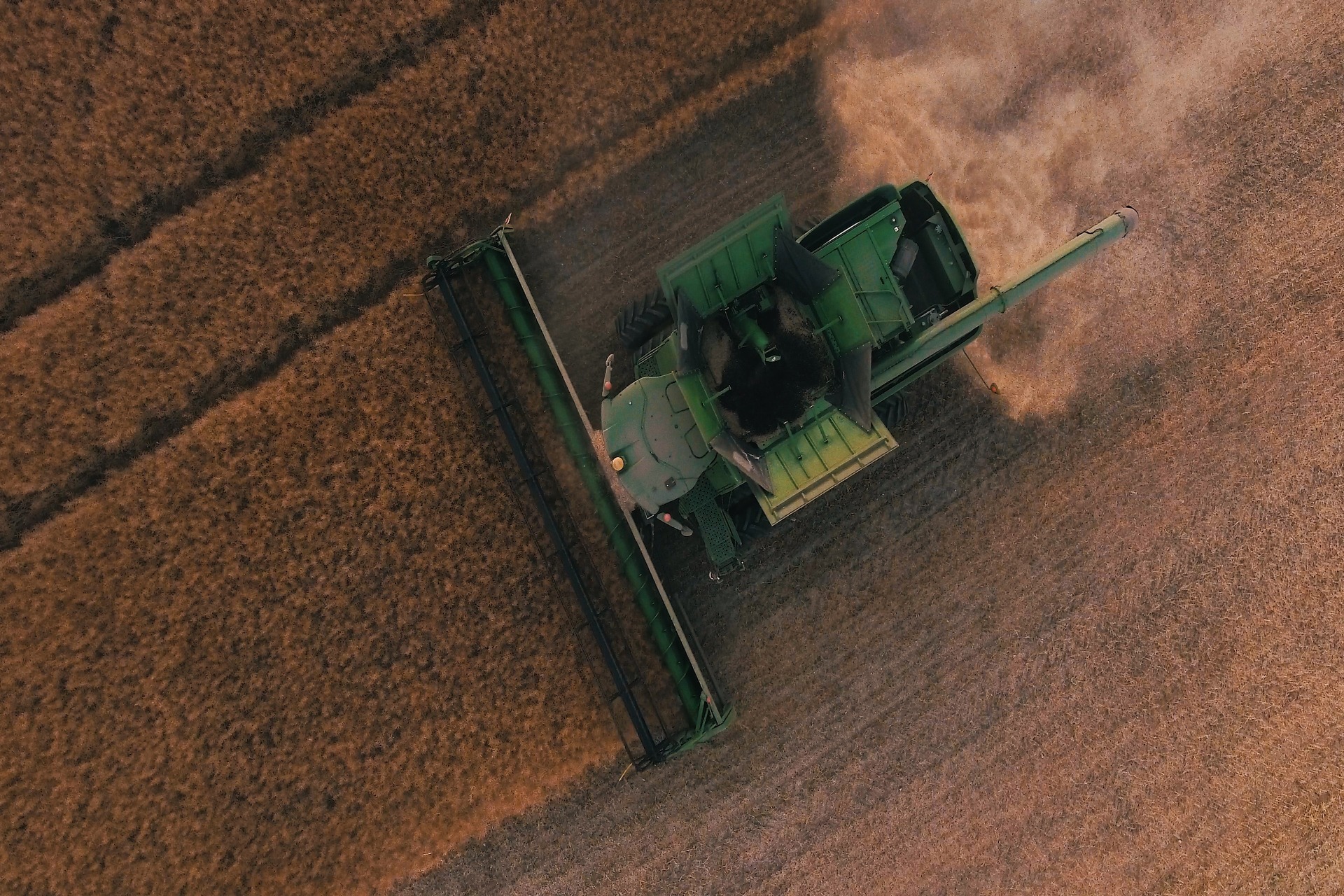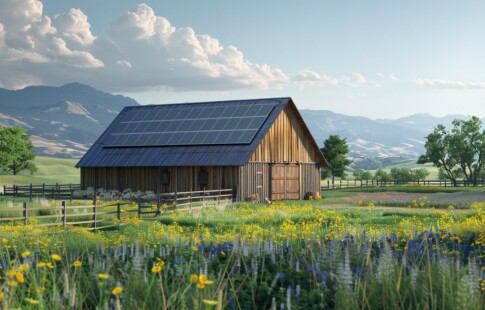
What Are The Impacts of Agriculture to the Society? Unveiling Hidden Influences
We are reader-supported. When you buy through links on our site, we may earn affiliate commission.
You bite a crisp apple, but have you ever stopped to think about the journey to get to your hand? That’s agriculture in action! It is far more than just farming — the entire system grows, processes and brings food to your table. But its influence doesn’t stop there. It begs to ask, what are the impacts of agriculture to the society?
1. Economic Growth
Agriculture is like the powerhouse engine that fuels the economy. Think about it — farming, food processing and distribution all fall under this sector. These activities are critical for job creation, employing millions of people worldwide. Whether it’s the farmer tending the fields or the truck driver delivering produce, these jobs are the backbone of many communities.
But remember its financial prowess. Agriculture plays a massive role in gross domestic product (GDP) growth. It’s the most significant contributor to the national economy in many countries, especially developing ones.
In 2021, food, agriculture and related industries accounted for a 5.4 percent share of the U.S. GDP, roughly $1.264 trillion. When the agricultural sector thrives, it creates a ripple effect that boosts other industries too.
2. Food Security
Consistent access to enough nutritious food is invaluable for a healthy life. It’s a big deal, and agriculture is the key player in making it happen. Farms produce the grains, fruits and veggies that fill pantries and plates, ensuring a stable food supply all year round.
But it gets even better. A steady food allocation means healthier communities. People with access to various foods are likelier to get the necessary nutrients. It can lead to lower rates of diseases like obesity and malnutrition.
3. Social Structures
Before farming, people lived as nomads, moving around to find food. However, agriculture allowed them to settle down and build communities. It’s the reason societies have villages, towns and big cities today.
With settled communities, roles started to evolve. Some became farmers, while others took on positions like traders or leaders. This division of labor helped form the social structures you know today.
Agriculture has also shaped culture and traditions. Think about harvest festivals or the importance of certain foods in religious rituals. It’s incredible how deeply agriculture is woven into the fabric of society.
4. Technological Advancements
Innovations — like tractors, drones and biotechnology — are revolutionizing the field. These advancements make farming more efficient, allowing for higher yields with less manual labor.
Efficiency is excellent, but the perks don’t stop there. When farming gets easier and more productive, food becomes more affordable and accessible for everyone. This technology also opens doors for sustainable farming methods, helping people take better care of the planet.
5. Environmental Impact
You might not realize it, but agriculture has a significant footprint on the planet’s land and water. Farms require vast tracts of terrain for crops and livestock, and irrigation systems pull heavily from water supplies. If not managed responsibly, it can lead to soil degradation and water scarcity.
But here’s the good news — sustainable farming is rising to the challenge. This approach focuses on eco-friendly practices — like crop rotation and organic farming — to maintain the health of the land and water. It’s all about balancing producing food and preserving natural resources.
And the cherry on top? Numerous initiatives are working to offset the negative impacts. Think conservation programs, technology for water-efficient irrigation and education on sustainable practices. These efforts aim to create a more harmonious relationship between agriculture and the environment.
6. Global Trade
Countries export and import tons of agricultural goods, from fruits to grains and meat. This vibrant exchange is crucial to international trade, strengthening economic ties between nations.
Have you ever heard of “food miles?” It’s the distance food travels from where it’s grown to your plate. While having access to global produce is fantastic, these miles also represent the environmental impact of transportation. It’s a concept worth pondering as you enjoy foods worldwide.
But how does this all affect local economies? When a country exports agricultural products, it brings in revenue. However, it can also lead to competition that may challenge local farmers. The impact of global trade is a mixed bag, creating opportunities and challenges for communities.
7. Energy Production
Biofuels — like ethanol and biodiesel — come from crops such as corn, sugarcane and soybeans. These are for eating, but they also turn into renewable power sources.
But why is it such a big deal? Biofuels are crucial in the sustainable energy landscape. Unlike finite fossil fuels, they’re renewable, meaning people can grow more crops every season. Plus, they generally produce fewer greenhouse gas emissions, making them a cleaner option for the planet.
8. Medicinal Plants
Natural remedies from farming include herbs like lavender and chamomile for relaxation, garlic for its antibacterial properties and ginger for digestive issues. The list goes on, including echinacea for wounds and aloe vera for skin treatments.
These natural remedies have a significant influence on health care. Many people turn to plant-based treatments to complement modern medicine or as an alternative for minor ailments. Even big pharmaceutical companies harness plant compounds to create medications.
9. Textile Industry
Crops — like cotton, flax and hemp — are key players in the weaving industry. These plants get spun into fibers, which then turn into the fabrics you use daily.
In many regions, textile crops are a vital source of income for farmers. However, ensuring fair labor practices and wages in this industry is crucial. When done right, it can uplift communities and contribute to social well-being.
But what about the planet? Sustainability is gaining ground here, too. Organic farming methods and eco-friendly dyes are making textiles better for the Earth. Initiatives like sustainable certifications are also helping consumers make more informed choices.
10. Land Use and Development
Agriculture is a major influencer in how societies use land. It dictates where you can build homes, roads and entire cities. Agricultural land preservation is often a hot topic in urban planning.
Regarding the urban-rural divide, cities frequently expand into rural areas. It creates a tension between development and preserving farmland. Agriculture is a buffer, maintaining rural identities and providing green spaces that benefit everyone.
Local farms can also be community hubs, offering fresh food and educational opportunities. They often partner with urban areas for farm-to-table programs, bridging the gap between the city and the countryside.
The Lasting Impacts of Agriculture
Agriculture’s impacts ripple through every facet of society, from local communities to the global stage. It’s about shaping the world, both now and for future generations.
Become an informed advocate. Whether buying local produce, supporting sustainable farming practices or educating others about agriculture’s wide-ranging impacts, your engagement matters.
Share on
Like what you read? Join other Environment.co readers!
Get the latest updates on our planet by subscribing to the Environment.co newsletter!
About the author
Steve Russell
Steve is the Managing Editor of Environment.co and regularly contributes articles related to wildlife, biodiversity, and recycling. His passions include wildlife photography and bird watching.





